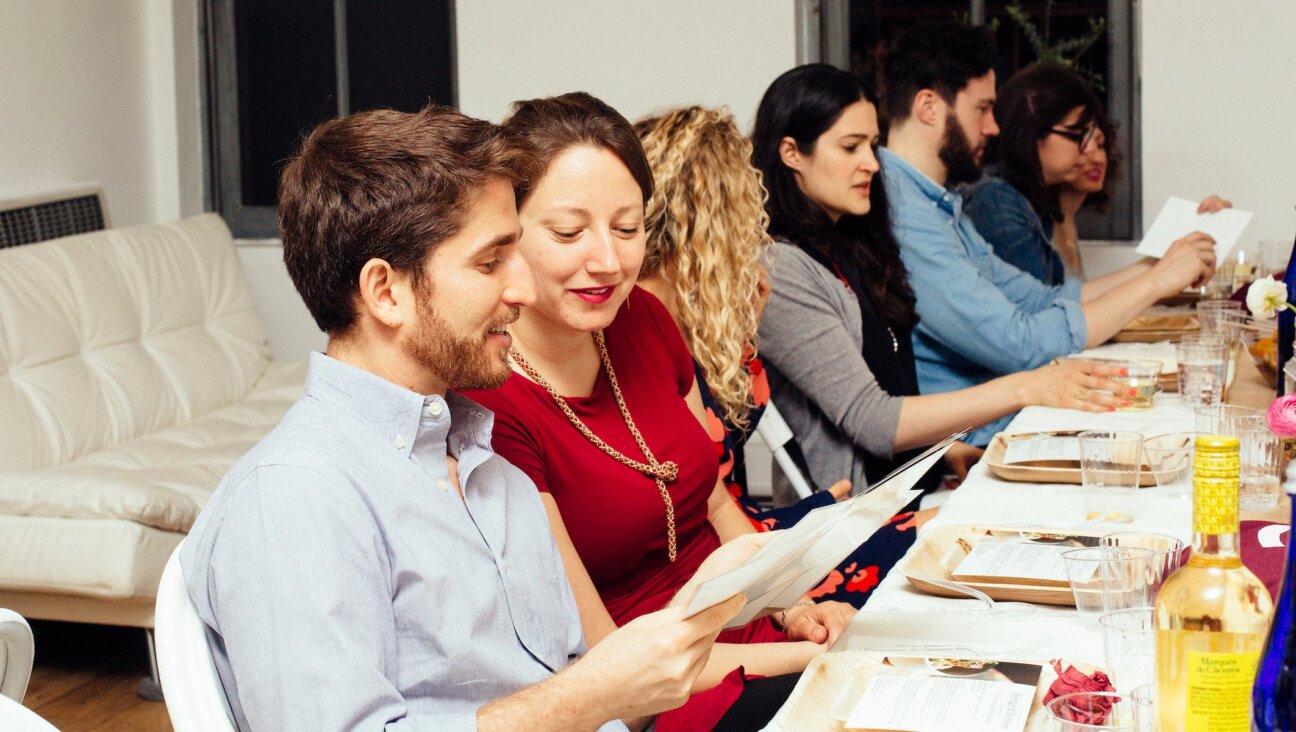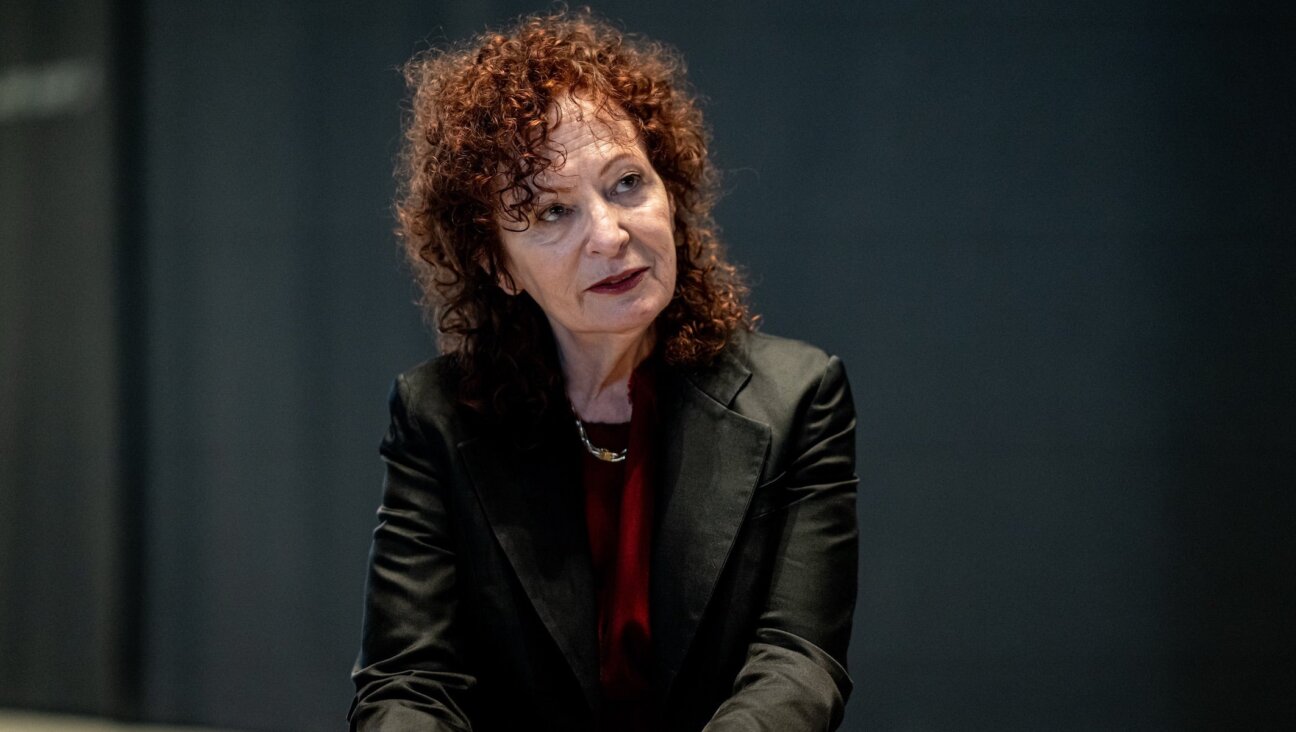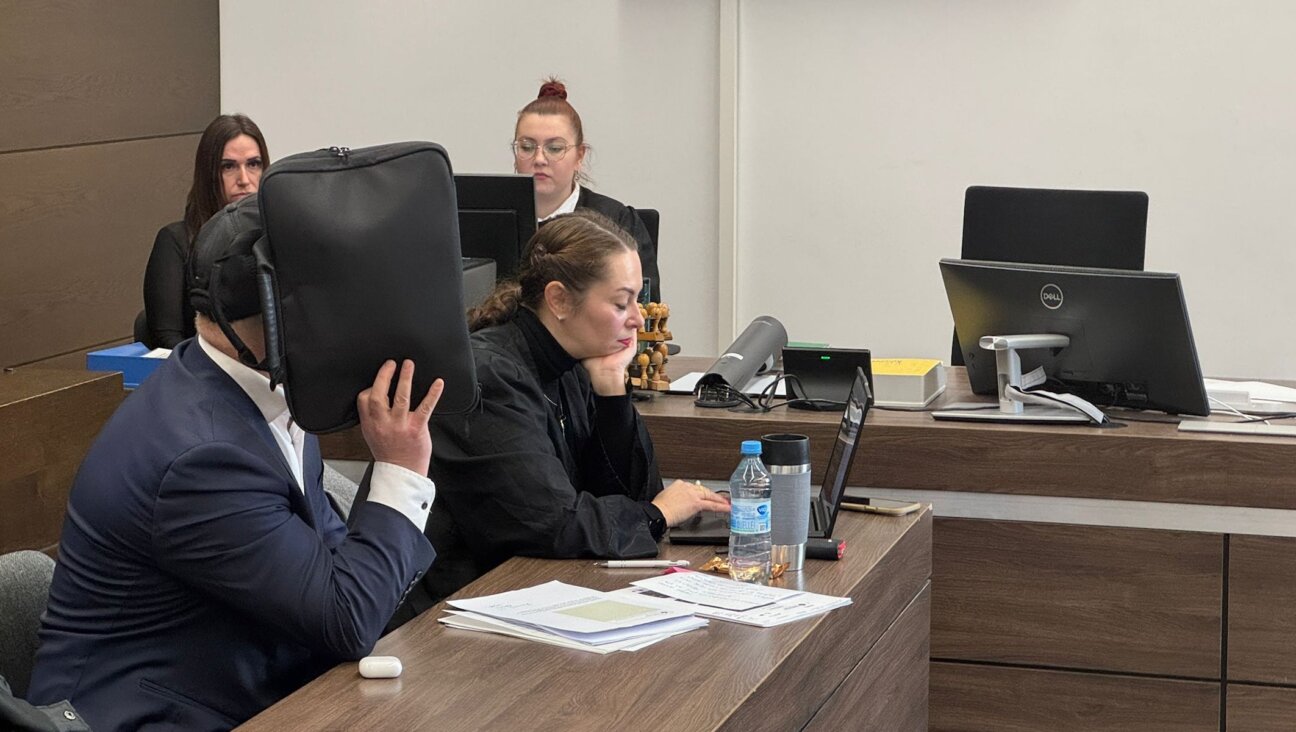As Yeshiva Child Sex Abuse Scandal Grows, Why Are We Afraid To Speak Out?

Graphic by Angelie Zaslavsky
We in the Orthodox Jewish community claim to value children deeply. We want to have children, and we pressure our own children to get married and have children, and yet, when it comes to really ensuring those children’s utmost protection from harm, somehow the silence is deafening.
As a Yeshiva University alumnus and a psychotherapist who works with abused children, I was horrified to learn that my alma mater was apparently involved in a 30-year cover-up of sexual abuse that affected hundreds of children and protected known abusers. Y.U. — an institution to which I am grateful for making me who I am today — also has refused to commit to releasing to the public details of its investigation into these abuses.
So I created a petition urging Y.U. to commit to sharing the report findings with the public. Nearly everyone I know — many alumni from Y.U. and its Stern College for Women, including rabbis, did not sign. Other than one or two brave figures, the people I worked with for years through Y.U., programs teaching Jewish children worldwide about Jewish values, wouldn’t sign, nor would they do anything else I am aware of to support victims.
I am deeply saddened by this blinding lack of empathy for our fellow suffering Jews.
As a psychotherapist, I know firsthand about the long-term effects of sexual abuse on children: It impacts their self-esteem, their faith, their trust in others — especially in the community. Silence in the face of abuse conveys the message to victims that their suffering matters much less than protecting the abuser or the leaders who covered up the abuse. With each day of silence that passes, the victims feel more isolated and betrayed. What is this passivity in the face of such terrible injustice?
I have come to understand that most people in my community are blocked by fear. Most people want to do the right thing, but are afraid of being judged by others, or they don’t want to “break with Y.U.” While loyalty is an important value, it cannot take precedence over the safety of our children.
People invent intellectual arguments that enable them to avoid doing what’s difficult. They argue that holding someone responsible for particular actions will amount to vilifying an institution they care about. But this crisis is about holding specific people accountable for criminal and reckless behaviors and cover-ups, not about indicting a beloved school.
These fear-based justifications need to be challenged. We Jews are good at challenging our own thinking in the realm of learning, but of what use is this skill to us if we can’t apply it to our lives as Jews and to protecting our children?
Those who are part of Y.U.’s leadership can set things right. They can hold those who erred accountable, insist that the school’s rosh yeshiva, or chancellor, Norman Lamm, resign and then they can clean house. They can publicly apologize on Lamm’s behalf instead of ignoring the victims, and set up a fund for the victims’ therapy costs. They can commit to making their abuse report findings public. This will demonstrate empathy, console victims and exemplify true moral leadership. (Not to mention reduce lawsuits.)
Each of us can help victims, too, by writing to Y.U. and other Jewish organizations, asking them to take a stand for all children, withholding donations until we achieve a more ethical response, and pressuring board members we know to take action. We can encourage everyone in our community to open his or her heart and connect with the victims’ pain.
Here’s how to open your heart: Ask yourself what blocks you from speaking up. Take some time to reconnect with how it felt to be a small, helpless child, dependent on adults for security and love — and then imagine that a trusted, powerful figure in your life (a parent or teacher you admire) violates your trust by humiliating you or sexually abusing you at an age when you are still making sense of your world sexually and otherwise. If you are able to, for a moment, feel how these people have suffered, you will be able to stand up for them.
If we — as Jews, as community leaders, as institutions — do not stand up for our victims, we will become a community that enables abuse. Pedophiles know that in communities where fear of speaking out is high, they stand a better chance of getting away with their crimes. They know that in those communities, people are more concerned with their own reputation and with the reputation of their leaders and their institutions than they are with protecting their children.
If we don’t insist that abuse is intolerable in our midst, it will affect our children and grandchildren. I do not want us to become that type of community.
Stacey Klein works as a psychotherapist in New York City.
















